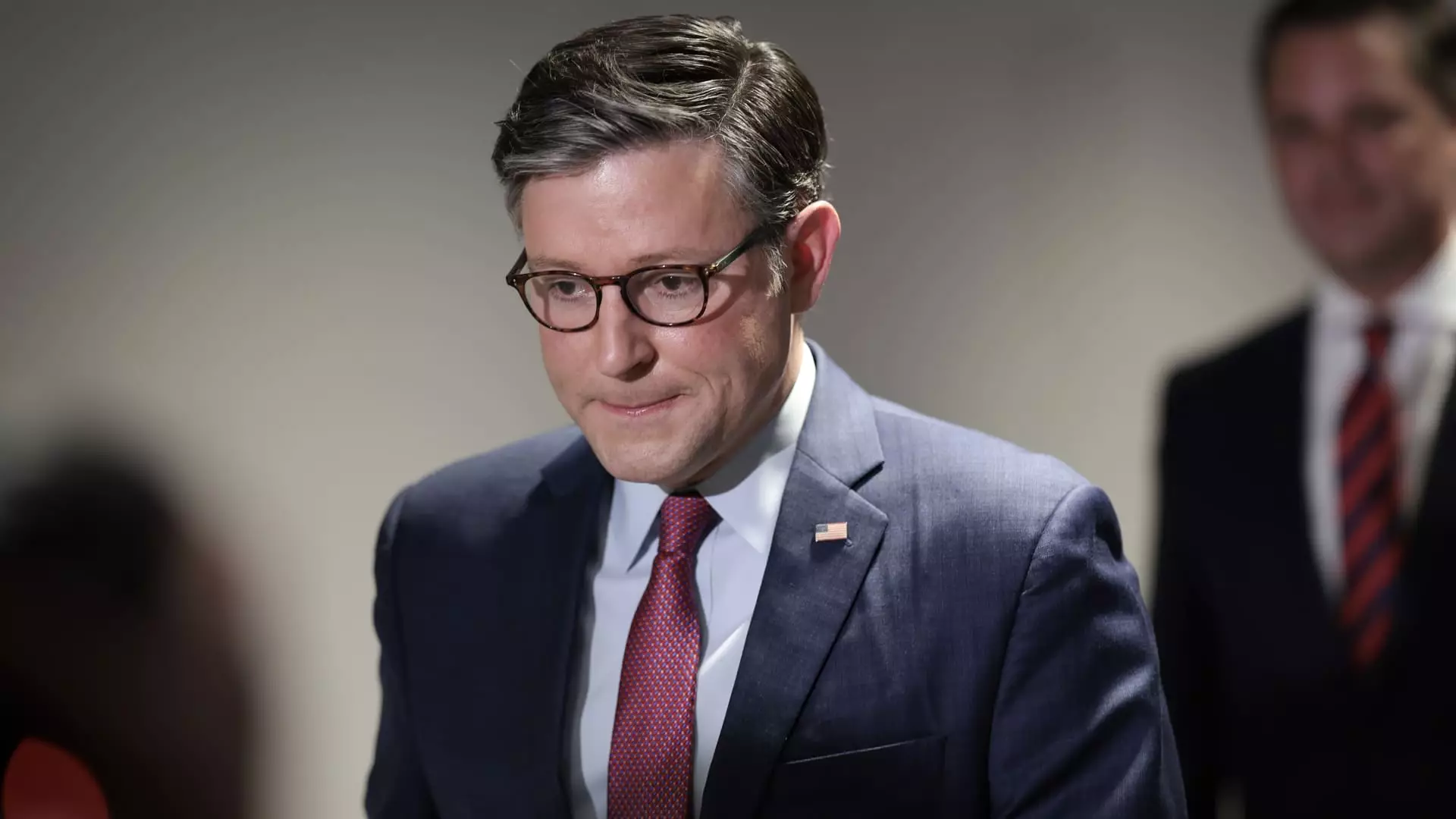In the complex landscape of American politics, the tug-of-war between partisan ideals and practical governance often takes center stage. Recently, Republican House Speaker Mike Johnson unveiled a new temporary government funding proposal that deviates significantly from earlier plans and reflects a shift towards bipartisan cooperation. This approach marks a pivotal moment in the current political climate, considering the looming threat of a government shutdown on the horizon with an election cycle approaching at full speed.
Johnson’s recent proposal comes after an initial bill backed by former President Donald Trump, which aimed to span an extensive funding period and included stringent voter registration measures. However, the new measure, designed to keep the government funded until December 20, represents a stark departure from Trump’s wishes, indicating a willingness to negotiate and compromise—a necessity more pronounced in today’s fragmented political environment.
The motivation behind Johnson’s revised strategy stems from a clear urgency: to prevent a government shutdown that could occur as soon as October 1. With only eight days left to reach a consensus on government funding, this decision underscores the gravity of the situation. Johnson, in his communications with fellow legislators, highlighted the need for a “narrow, bare-bones” funding proposal, focusing only on essential extensions necessary for continuity in governance.
In the midst of rising tensions, it’s intriguing to note that both parties have vested interests in avoiding a shutdown. As depicted in polls and historical precedents, a faltering government not only renders political parties vulnerable but can also have disastrous implications on public trust and legislative effectiveness. Johnson’s cautious tone in his correspondence—deeming a government shutdown merely thirty-nine days before an election as “political malpractice”—is emblematic of a speaker aware of the precarious nature of his leadership.
Shifting Political Dynamics
One aspect of this scenario that demands attention is the internal dissent among House Republicans. While Trump advocated for steadfastness regarding funding and voter security, the reality within the GOP is less resolute. Many Republicans expressed discontent with both the SAVE Act and the notion of temporary funding, presenting a significant hurdle for Johnson, who must navigate the varied loyalties of his party while striving to achieve legislative success.
The delicate balance of Johnson’s leadership is underscored by his need to maintain party unity while negotiating externally with Democrats. With a razor-thin majority, every vote counts, and losing even a handful of Republican votes could jeopardize the passage of his proposals. This precariousness, compounded by a demonstrated willingness from Democrats to sideline discussions that do not meet their requirements, renders the situation all the more challenging. The urgency of the moment requires a remarkable degree of political acumen.
The shifting landscape of Johnson’s proposal indicates an understanding of the importance of bipartisanship, especially in a polarized political environment. Dropping the contentious SAVE Act was a strategic decision likely influenced by Democratic leaders, including President Joe Biden and Senate Majority Leader Chuck Schumer, who have been vocal proponents of shorter-term solutions with less attached legislation. In his recent statements, Schumer expressed optimism that a government shutdown was now avoidable, emphasizing the necessity for collaboration to propel legislative progress.
Johnson’s ultimate decision to pivot reflects a recognition that governance in this era often necessitates compromise and negotiation, particularly when the stakes are high. His predecessors have faced challenges analogous to his own, and lessons learned from their political journeys will undoubtedly play a role in shaping his leadership strategies moving forward. The fallout from McCarthy’s ousting in light of his bipartisan efforts haunts Johnson, navigating a treacherous political terrain laden with potential pitfalls.
Future Implications
Looking ahead, the implications of Johnson’s decisions will resonate beyond the immediate funding concerns. By establishing a temporary solution now, he opens the door for a future Congress to reevaluate and redefine priorities without the constraints often imposed by long-term funding agreements. This move could ultimately pave the way for greater flexibility, though it signals a broader shift in how Congressional leadership navigates interplay among party loyalty, public expectation, and governance.
As Speaker Mike Johnson forges a path through the intricacies of government funding, his willingness to compromise embodies the reality of contemporary American political dynamics. Such strategic decisions may shape not just the future of his leadership, but also the broader context of legislative progress in a time marked by intense polarization. The pursuit of bipartisan support appears to be the most prudent choice in a landscape where every decision bears significant ramifications for governance and electoral outcomes.


Leave a Reply